At this year’s Mental Health First Aid (MHFA) Summit in Philadelphia, we came together to celebrate 25 incredible years of teaching people how to support mental health around the world — and to look ahead to what’s next.
As MHFA International marked its 25th anniversary, hundreds of dedicated professionals, supporters, MHFA Instructors and Coordinators came together to reflect on a legacy of impact and to envision the future of mental wellbeing around the world.
The Summit kicked off with an inspiring keynote from Tramaine EL-Amin, vice president of MHFA. She reminded us that even in a time of change, the heart of MHFA — its mission, its people and its impact — remains as strong as ever.
“While some changes must be implemented, our mission remains steadfast,” El-Amin said. “Mental Health First Aid is a commitment to our communities that we’ll be there for each other. You all are bringing that commitment to life every day. Thank you for all you do. For all the success you’ve created. For your perseverance and your resilience.”

Then, EL-Amin sat down with Professor Tony Jorm, cofounder of MHFA International; Dr. Claire Kelly, director of international programs; and MHFA International leaders Dr. Jakqui Barnfield and Krystian Seibert. They talked about how MHFA started as a single course that launched in Canberra, Australia, in 2000. Now, 25 years later, over 8 million people have been trained all around the world.
Professor Jorm shared how the idea first came to life:
“It all started in 1997 on a dog walk,” he said. “My wife Betty Kitchener and I lived in Australia’s capital city, Canberra. We went for an evening walk with our dog, King. During that walk, we had a conversation about why first aid courses — like the ones run by the Red Cross — don’t teach people how to help during a mental health crisis. You learn CPR, but the chances of needing CPR are pretty small. The chances you’ll meet someone struggling with suicidal thoughts or depression? Much higher. So why don’t we teach people how to help in those moments?”
Jorm explained that when he and Betty began developing MHFA, they wanted it to be grounded in evidence-based research, but they quickly discovered there wasn’t much out there.
“We did our best in that first version — we talked to various experts — but we realized it wasn’t enough. So we decided to create international guidelines on how to best support somebody.”
We heard more from Dr. Barnfield and Seibert, who shared big plans for MHFA’s future — growing the program, reaching new places and helping even more people.
We also got some great advice from Angelique Rewers, small business growth expert and CEO of BoldHaus, on how to lead and make a difference in today’s changing world. She introduced a simple framework: Awareness, Attitude, Action. By being aware of our purpose, maintaining a positive attitude and taking deliberate actions, we can inspire others to get on board with our ideas and make a real impact, all while staying true to our mission.
It wasn’t all speakers and panels — we took some time to celebrate too! We ended the day with music, dancing, drinks and food at our MHFA Appreciation Reception. People shared their stories on the MHFA Impact Wall, celebrating their achievements and showing how they’ve helped their communities. And the MHFA Networking Scavenger Hunt was a great way to meet new friends and win some prizes!
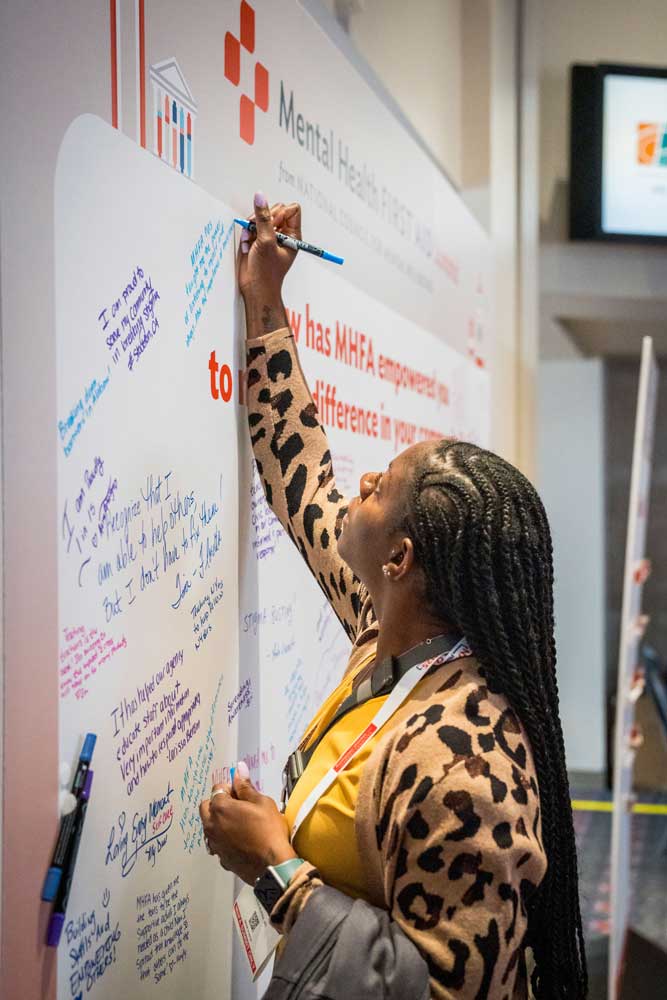
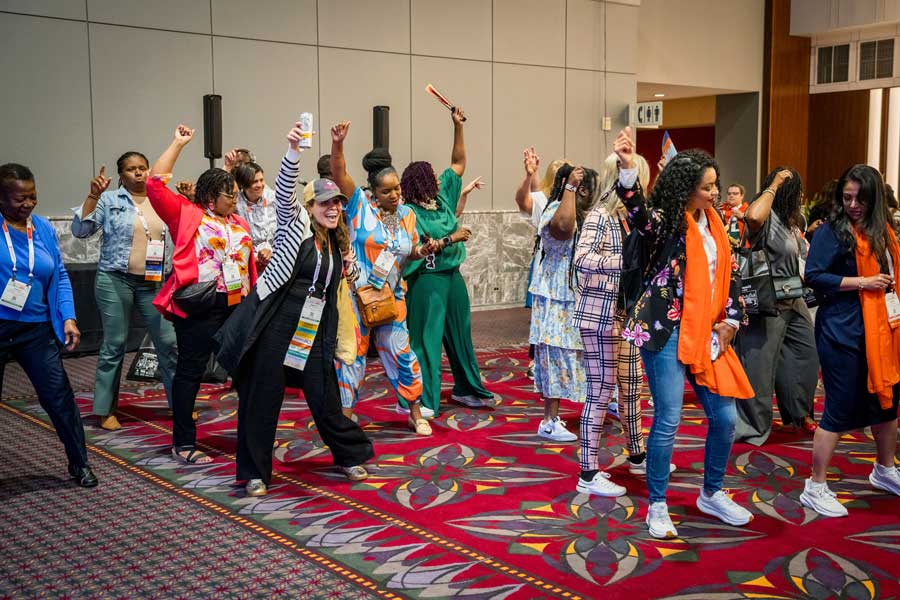
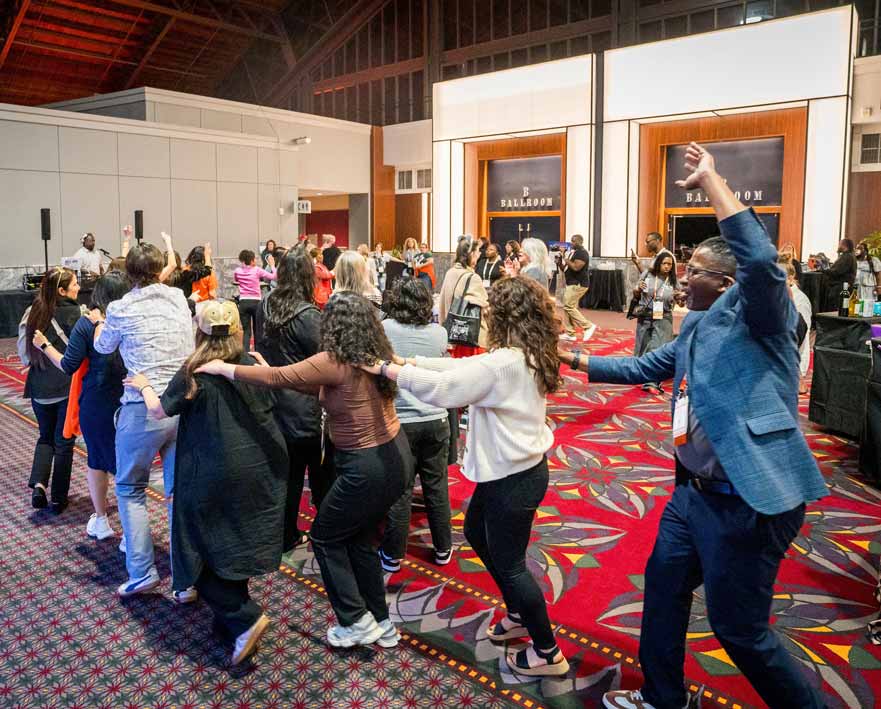
One of the most memorable moments was the MHFA Summit Impact Awards ceremony. We honored some amazing organizations and individuals who have gone above and beyond to spread MHFA and support others. Big congratulations to:
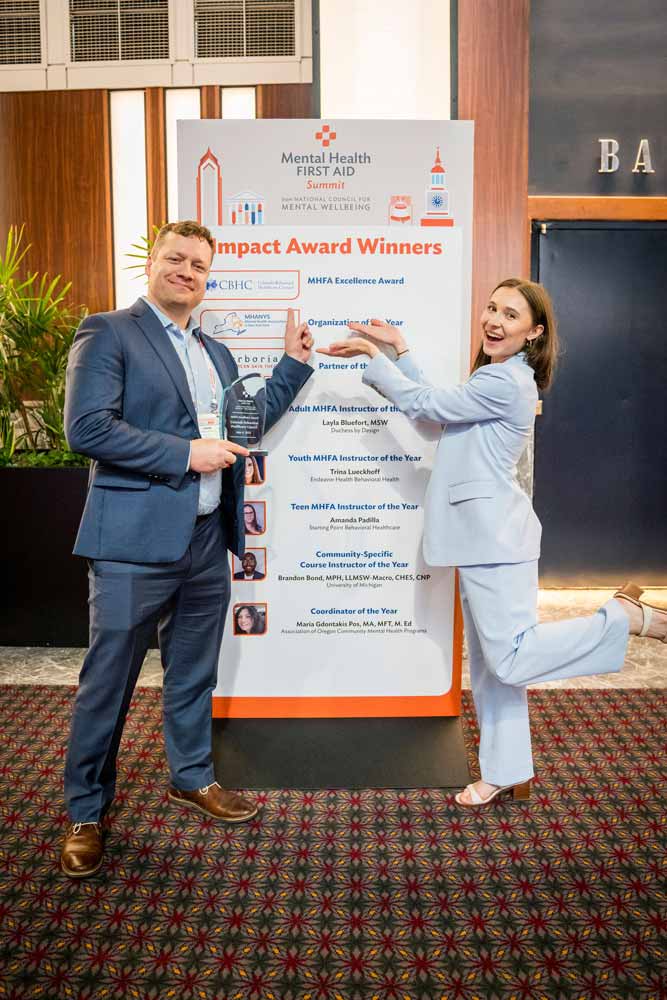
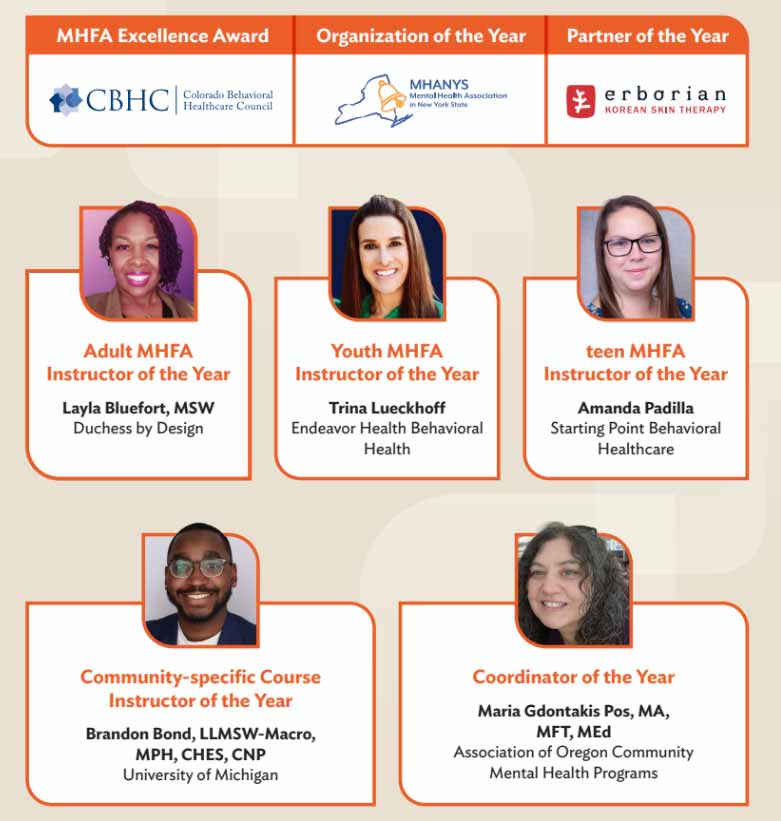
Jorm and Kitchener received a Lifetime Achievement Award, a heartfelt surprise by the CEO of the National Council for Mental Wellbeing, Chuck Ingoglia, who personally recognized their contributions.
We also presented the MHFA Founders Award to several of our inspiring National Trainers who have been with MHFA since the early days — including the remarkable Liz Reardon, who became a National Trainer in 2008. Liz shared her story, starting with the surprise phone call that changed everything:
“It was Thursday, Nov. 8, 2008, at 3:30 p.m. … Jeannie Campbell, the National Council’s COO, was on the line and said, ‘Hey Liz — we found this program from Australia called Mental Health First Aid. I think it’s right up your alley. Would you like to be a National Trainer?’ I said, ‘Jeez, Jeannie, I’ve never trained anybody before in my life!’ ‘You’ll be all right,’ responded Jeannie. And so, it was.”
Liz went on to describe her first year with MHFA, the challenges she faced and the strong support from her fellow trainers and friends that helped her through:
“That weekend was a transformation. … I was a wreck when I had to present my section, which links me in compassion to ALL my beloved Instructor candidates. … I passed, and I’m still here with you all. I have been gifted to love, challenge and mentor so many of you. You are always in my heart.”
Stories like Liz’s make it clear that MHFA is not just a program — it’s a community.
The 2025 MHFA Summit was a powerful reminder that, not only is mental health extremely important, but so is every single person helping to make a difference. Whether you’ve been with MHFA for years or just got started, thank you for being part of this movement. Here’s to the next 25 years of helping people and transforming communities — one conversation at a time.
We can’t wait to see you next year — mark your calendar for the 2026 MHFA Summit on April 26 in Denver!